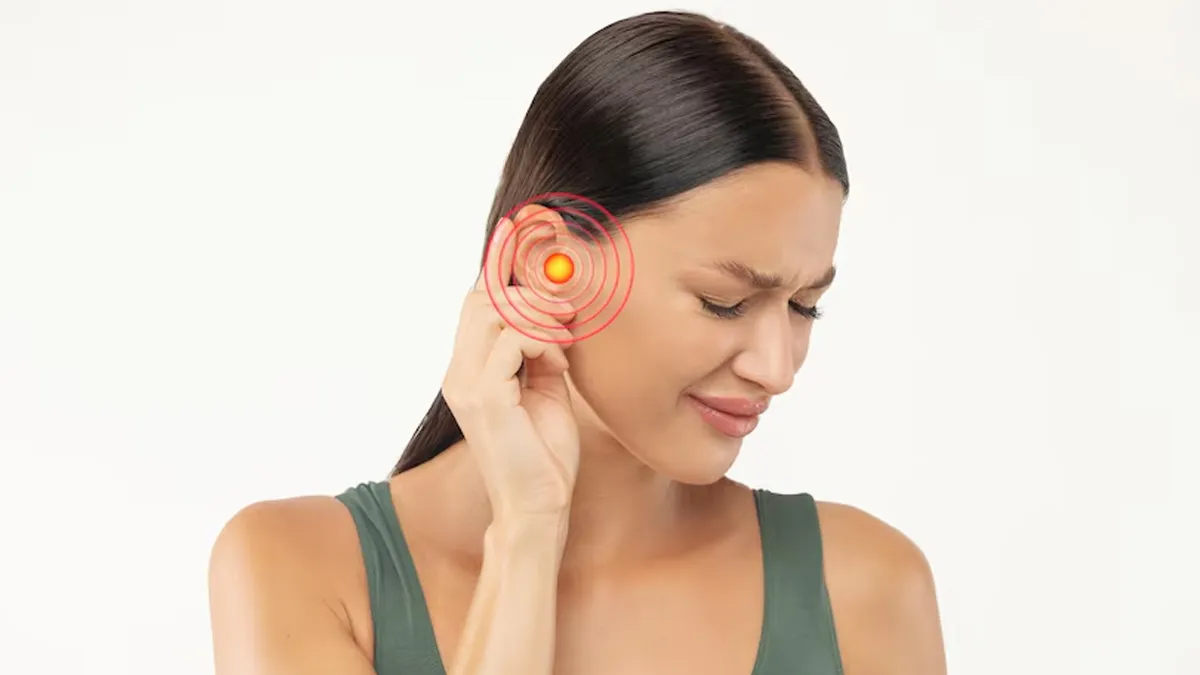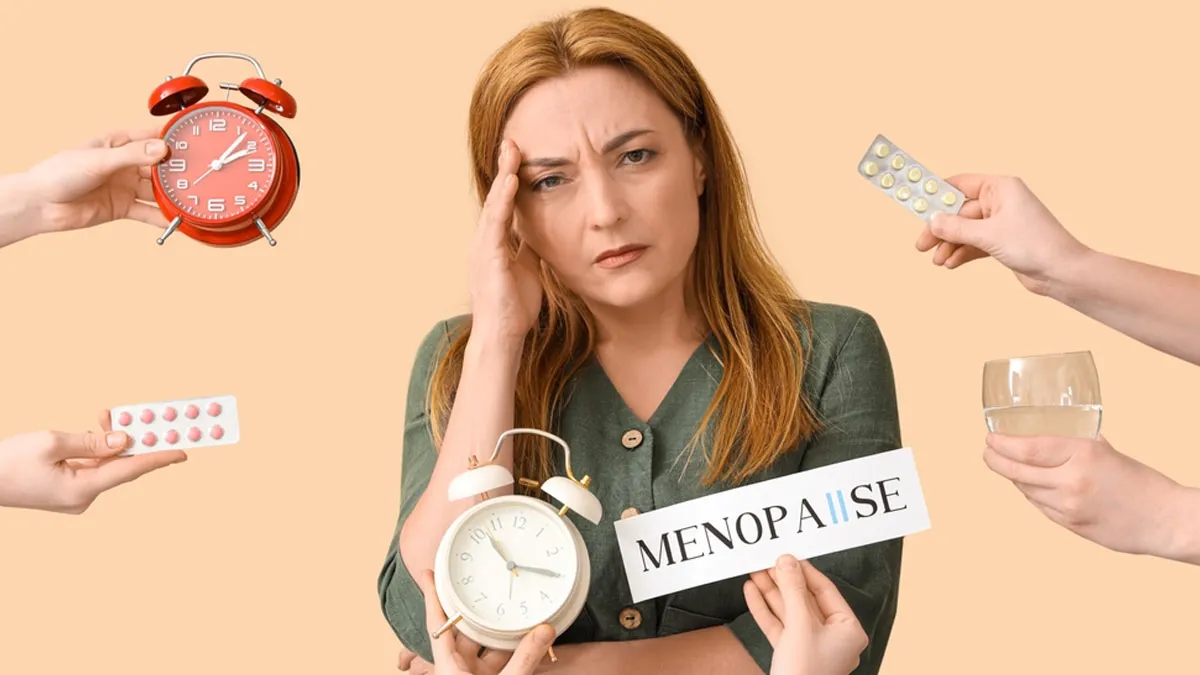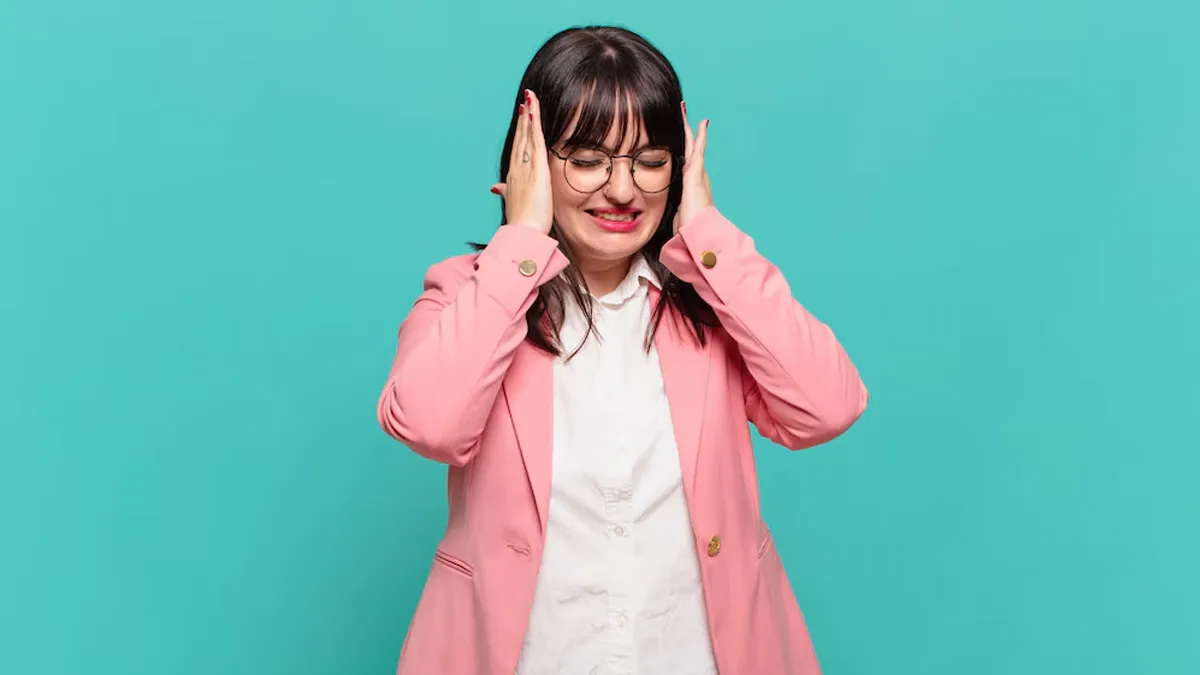
Sound is all around us. People talking, dishes clinking, keys tapping, phones buzzing. For most of us, it’s just background noise. But what if certain everyday sounds suddenly made you feel frustrated, upset, or physically restless? That’s the experience some women face during menopause. Recently, author-actor and columnist Twinkle Khanna revealed that she is going through this very challenge.
Table of Content:-
Amid her open discussion on perimenopause and menopause symptoms, she disclosed a heightened sensitivity to sound, highlighting a condition called Misophonia.
Twinkle Khanna’s Menopause Journey and Sound Sensitivity![twinkle khanna menopause twinkle khanna]()
Twinkle Khanna has been quite candid about her menopausal transition. She wrote in her recent column, “Along with hot flushes, night sweats, eroding bone mass, thinning skin, and a new chin hair, I have also developed sound sensitivity to high-pitched sounds and to the tide’s rumbling waves.”
She opened up further about the fogginess and memory lapses, “I forget names, people, movies, books, only to have them return the next day like they had gone on an overnight camping trip.” Through her writing, Twinkle gives a vivid and relatable account of menopause, not only the standard symptoms like hot flashes but also the emotional, cognitive, and sensory shifts.
ALSO READ: Anunay Sood Death: 5 Influencers Who Sadly Passed Away Due to Health Issues
What Is Misophonia?![]()
In one of our previous articles, Dr Sheetal Goyal, Consultant Neurologist, Wockhardt Hospitals, Mumbai, discusses that misophonia is a condition where seemingly ordinary sounds trigger unusually strong emotional and physical responses. While the definition she provided was used in another context, it can be rephrased as: the intolerance of specific sounds that leads to intense emotional reactions such as anger or disgust and even physical responses like sweating, shaking, or increased heart rate.
Research supports that misophonia is more than a mere annoyance. For example, A 2022 Indian study found that approximately 15.85 % of undergraduate students reported moderate-to-severe misophonia-like symptoms. Another UK study published in PLOS ONE reported that nearly one in five people had strong negative reactions to everyday sounds, though only about 2.3 % identified as having misophonia.
From these findings, we see that though not every person with sensitivity to sound has misophonia, it is fairly common and can significantly affect daily life.
Why Sound Sensitivity May Rise During Menopause![]()
Menopause brings major hormonal shifts, most notably a drop in oestrogen and other changes that affect body regulation. According to the expert, these changes can influence how the brain processes sensory input, stress, and emotional regulation.
Here are some ways menopause and misophonia might intersect:
- Hormonal changes may increase nervous system sensitivity, making sensory triggers feel stronger than before.
- Sleep disruptions, hot flashes, and mood swings may heighten overall stress, making it harder to tolerate additional annoyances like certain sounds.
- Cognitive changes or “brain-fog,” common in menopause, can reduce the buffer against irritants, so sounds that were once background now feel intrusive.
- While there is no direct causal study linking menopause to misophonia yet, anecdotal reports and research into sensory-sensitivity shifts suggest the linkage is plausible.
Coping Strategies for Sound Sensitivity (Misophonia)![]()
If you are experiencing heightened sound sensitivity during menopause, these strategies may help, as per Dr Goyal:
- Sound masking: Use white noise machines, soft ambient music, or noise-cancelling earphones to drown out triggering sounds.
- Cognitive-behavioural techniques: Therapy can help you recognise how you react to sounds, reframe your response, and practise relaxation when triggered.
- Gradual desensitisation: With professional guidance, gently exposing yourself to trigger sounds in a controlled way may build tolerance over time.
- Lifestyle support: Good sleep, reduced caffeine, stress-management techniques (like meditation or yoga) will help your nervous system regulate better.
- Support networks: Joining support groups, online or in-person, can validate your experience and provide ideas from others who understand sound sensitivity.
ALSO READ: From Pregnancy To Menopause: Why Pelvic Floor Therapy Is Key to Women’s Health
Conclusion
Twinkle Khanna has done something valuable: she voiced a sensory challenge that many women may face silently during menopause. When sound feels like more than a nuisance, when it triggers real distress, it’s worth taking seriously. Menopause already brings change; if sensory overload enters the mix, you don’t have to simply endure it in silence.
Also watch this video
How we keep this article up to date:
We work with experts and keep a close eye on the latest in health and wellness. Whenever there is a new research or helpful information, we update our articles with accurate and useful advice.
Current Version
Nov 10, 2025 10:51 IST
Published By : Vivek Kumar




